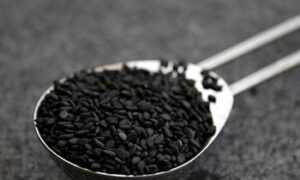
You may know that the rules of Islam do not govern just the spiritual development of its followers, but also provide a guideline for their daily routines. Many of these tips have been scientifically proven to be highly beneficial for you.
Here are lists of 14 rules from Islamic teachings that can greatly benefit your health:
1. Practicing moderation in diet
Islam emphasizes moderation – not too much and not too little – in every aspect of life. The second half of verse 31 of Surah Al-A’raf states, “Eat and drink, but be not excessive. Indeed, He likes not those who commit excess.” A hadith in Tirmizi further advises Believers to leave “one third of the belly with food, another third with drink and leave one third empty for easy breathing.”
When it comes to our diet, it has been scientifically proven that eating too much can contribute to weight gain and obesity, and all the health concerns stemming from it. Similarly, eating too little can result in your body not receiving the nutrients it needs for proper development and survival.
2. refraining from gobbling food and drink
Islamic teachings encourage followers to eat slowly and chew each morsel before swallowing. It takes your brain some time to register that your stomach is full and eating slowly ensures that you have not consumed excess calories before your brain receives this signal. Here’s another benefit: not only does eating slowly and mindfully help you eat less, it also enhances the pleasure of the dining experience.
3. Washing hands before & after meals

The Prophet (pbuh) has strongly advised that one should wash his hands before and after a meal. “It is a blessing to wash your hands before and after meal.” (Abu Daud & Tirmizi)
In the same vein, islam.ru states that Prophet (pbuh) has strongly advised not to clean hands with a towel before a meal because it may transmit infections from one person to another.
4. Emphasis on personal hygiene
Islamic teachings lay great emphasis on keeping one’s clothes and self clean. Tirmizi, Adab, 41 exhorts, “Certainly, Allah is clean and He likes cleanness.” It is highly advised to clean rubbish, take daily showers and not leave bodily waste out in the open. As the various European plagues of the Middle Ages have shown, not observing these precautions can lead to infestations of insect-spreading rodents.
5. Male circumcision
Islam makes it compulsory for all Believer males to be circumcised. According to WebMD.com, male circumcision reduces the risk of urinary tract infections, reduces the risk of sexually transmitted diseases in men, protects against penile cancer, and reduces the risk of cervical cancer in wives.
6. Eating black seeds

Islamic teachings insist that black seeds should be a part of your daily diet. Hazrat Abu Hurairah states, “I have heard from Prophet (pbuh) that there is cure for every disease in black seeds except death.” In seed or powder form, kalonji can reduce obesity, aid digestion, treat several digestive disorders, reduce blood pressure and treat congestion. Kalonji oil has proved to be effective in reducing joint pain and inflammation.
7. Keeping the lid on utensils
Stressing on proper care of kitchen utensils, Prophet Mohammad (pbuh) said, “Cover up the utensils and tie the mouth of the water skins.” (Bukhari) This prevents contamination from passing insects and lizards and in houses with open kitchens keeps stray animals away from the food.
8. Enjoying some shut-eye in the afternoon
Prophet Mohammad (pbuh) was in the habit of sleeping for a while after lunch and encouraged his companions and followers to do the same (Tabrani). Narrated Thumamah ibn Uthal, Anas said, “Um Sulaim used to spread a leather sheet for the Prophet (pbuh) and he used to take a midday nap on that leather sheet at her home.” A short mid-day nap gives relief to the vital organs of the body including the heart and brain.
9. Washing after urination and defecation
In contrast with Western practice, Islamic teachings require followers to wash genitals with water after urination and defecation. This method aids in complete removal of waste matter and associated bacteria, reducing risks of infection.
10. Refraining from consuming blood in any form
Strangely enough, blood that keeps you alive when it flows in your veins can prove toxic if it enters your digestive system, and this is why the zabiha / Halal method of slaughter requires blood to be drained from livestock before it is eaten. Blood is rich in iron, which the human digestive system is not designed to handle in large quantities. An iron overdose can cause liver damage, buildup of fluid in the lungs, dehydration, low blood pressure, and nervous disorders.
11. Turning to medical professionals for treatment
Kitab al-Tibb narrates the Prophet (pbuh) having said, “Make use of medical treatment, for Allah has not made a disease without appointing a remedy for it.” Continuing a treatment for as long as is required improves chances of recovery, reduces chances of complications and death and improves quality of life for the patient.
12. Using some kind of toothpicks (Siwaak/brush) after every meal
Prophet Mohammad (pbuh) encouraged his followers to use a tooth pick because “siwaak (toothpick) cleanses the mouth and pleases the Lord after every meal.” (Sahih al-Bukhari) It cleans out food-buildup in your teeth, preventing decay and reducing the risk of cavities and tooth and gum infections.
13. Using honey to treat infections
Verse 69 of Surah Al-Nahl in the Quran mentions honey as a source of “healing for mankind”, for good reason. Honey offers incredible antiseptic, antioxidant and immune boosting properties for our body and health. It not only fights infection and helps tissue healing but also helps reduce inflammation, even helping to cure coughs and flu, and treat acne.
14. Dealing with substance abuse
We learn from verses 90 and 91 of Surah Maidah that Islam is opposed to the use of any intoxicants. The detrimental effects of cigarettes are well-documented and there would be hardly anyone who was not well-aware of the harm caused by smoking. In addition, the lives, and in many cases the untimely deaths, of many celebrities are a testament to the devastating effects of substance abuse.
A report says : I heard the Prophet saying, “If there is any healing in your medicines, then it is in cupping, a gulp of honey or branding with fire (cauterization) that suits the ailment, but I don’t like to be (cauterized) branded with fire.”
